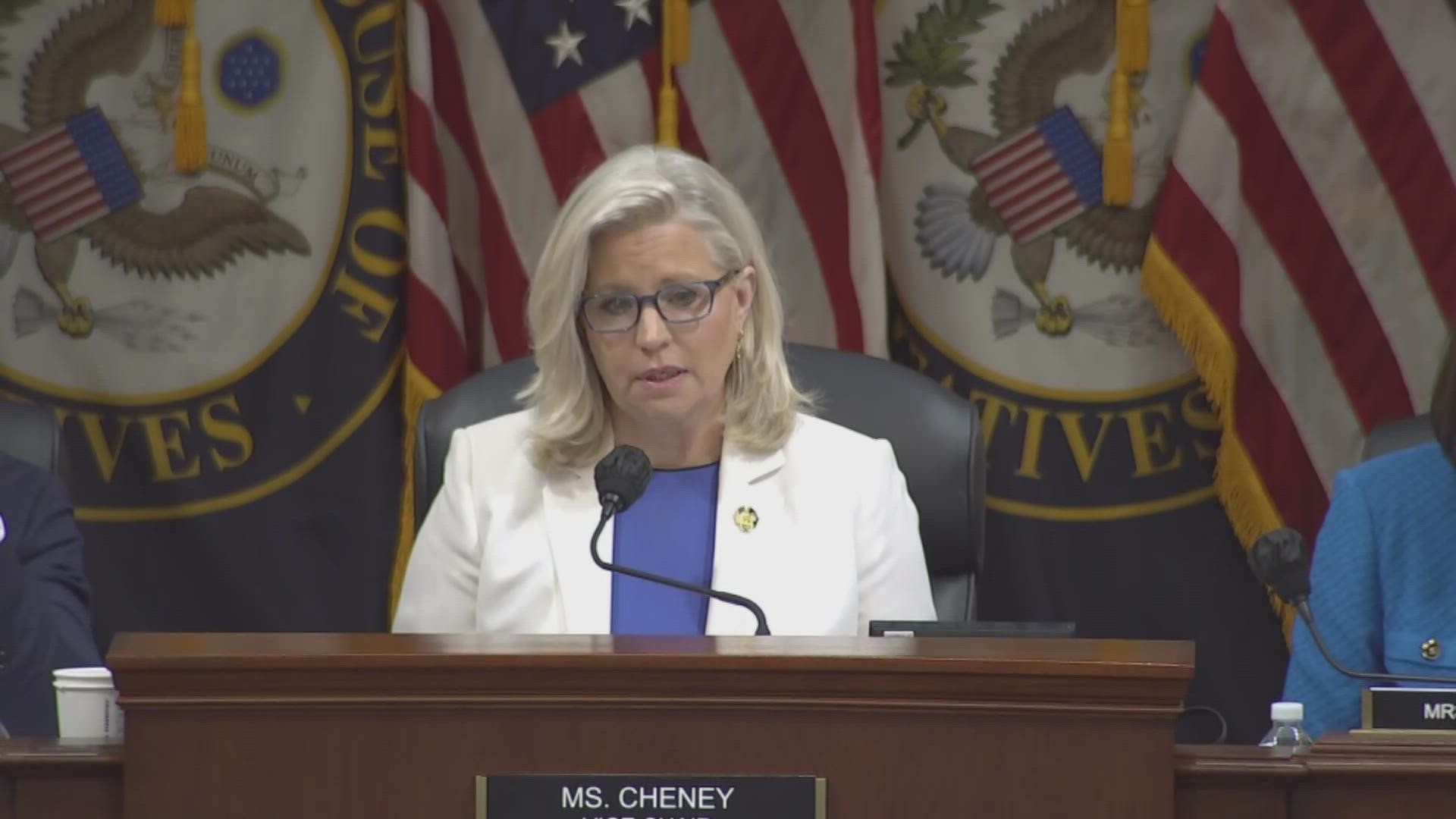WASHINGTON — Federal prosecutors appealed a district court judge’s ruling on a critical obstruction charge Monday and asked the D.C. Circuit Court to reinstate those counts against three defendants charged in the Capitol riot.
The filing consolidates appeals in the cases against Garrett Miller, Joseph Fischer and Edward Jacob Lang, who are all facing multiple felony counts stemming from the Jan. 6 assault on the U.S. Capitol Building. Prosecutors on Monday asked the appeals court to reinstate the most serious of those felony counts – obstruction of an official proceeding – after U.S. District Judge Carl Nichols dismissed them earlier this year.
With the exception of members of the Proud Boys and Oath Keepers charged with seditious conspiracy, the obstruction charge is the most serious accusation filed against more than 230 defendants in Jan. 6 cases. Jacob Chansley, the so-called “QAnon Shaman,” pleaded guilty to the same charge and was sentenced in November to 41 months in prison. Another defendant, Guy Reffitt, was convicted by a jury and sentenced last week to more than seven years in prison for obstructing the joint session of Congress and four other felony counts.
Last year, every judge on the D.C. District Court, including Nichols, rejected challenges by Jan. 6 defendants who argued the joint session of Congress was not an official proceeding and that its requirement that a defendant act “corruptly” was unconstitutionally vague. In March, however, and in subsequent hearings, Nichols, who was appointed to the federal bench by former President Donald Trump in 2018, found the charge used by prosecutors required a defendant to take “some action with respect to a document, record or other object” in order to obstruct that proceeding.
Where Nichols and prosecutors disagree is primarily in how the word “otherwise” should be interpreted in the obstruction statute: 18 U.S. Code § 1512(c)(2). The statute reads:
(c) Whoever corruptly—
(1) alters, destroys, mutilates, or conceals a record, document, or other object, or attempts to do so, with the intent to impair the object’s integrity or availability for use in an official proceeding; or
(2) otherwise obstructs, influences, or impedes any official proceeding, or attempts to do so,
shall be fined under this title or imprisoned not more than 20 years, or both.
Prosecutors argue section (c)(2), which was added by Congress to fill loopholes in the obstruction statute following the Enron scandal, was intended to serve as a catch-all for conduct not covered by section (c)(1). Nichols ruled, though, that it was a catch-all only for conduct contained within (c)(1), which is to say, conduct directly relating to a record, document or other object.
Nichols’ colleagues on the D.C. District Court have rejected his reading of the statute in their own orders on similar motions. U.S. District Judges Dabney Friedrich and Trevor McFadden, both appointed, like Nichols, by Trump, called his reading “unnatural” and “strained,” respectively. U.S. District Judge John Bates, a George W. Bush appointee, wrote in a May opinion that he’d concluded the statute is a “broad prohibition on all forms of obstruction” – a reading his colleagues, Nichols excepted, have broadly adopted. U.S. District Judge Timothy Kelly, the remaining Trump-appointee on the court, cited Bates’ decision in his own May order rejecting Nichols’ reading of the statute.
Prosecutors cited all of those rulings in a motion asking Nichols to reconsider but, on May 27, he declined to do so. The DOJ notified Nichols of its intent to appeal in all three cases on June 22 and, on Monday, that appeal was filed.
In the appeal, prosecutors describe Nichols’ ruling at various points as “counterintuitive" and "absurd." They also note his reading of the statute would not have applied to a defendant who explicitly stated he intended to stop legislators from performing their constitutional duties by “drag[ging] lawmakers out of the Capitol by their heels with their heads hitting every step” and leading a mob against federal officers unless he also picked up a document or record during that violent attack – a reference to Reffitt’s case.
The appeal carries high stakes for the three defendants involved, but also for prosecutors who could have to return to grand juries to revise hundreds of indictments – or risk the dismissal of their cases – if the D.C. Circuit Court were to uphold Nichols’ ruling. A ruling upholding Nichols' reading of the statute could also result in defendants who've already pleaded guilty to the obstruction charge, or to lesser charges in order to avoid the obstruction charge, to ask to withdraw their pleas.
Attorneys for Miller, Fischer and Lang have until Sept. 7 to file their responses to the DOJ’s appeal. Prosecutors will then have until Sept. 28 to file their reply.
We're tracking all of the arrests, charges and investigations into the January 6 assault on the Capitol. Sign up for our Capitol Breach Newsletter here so that you never miss an update.

